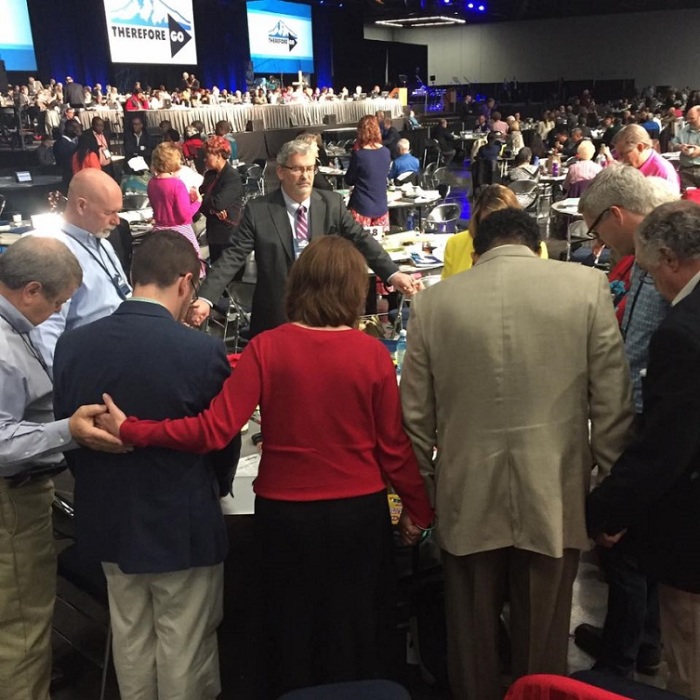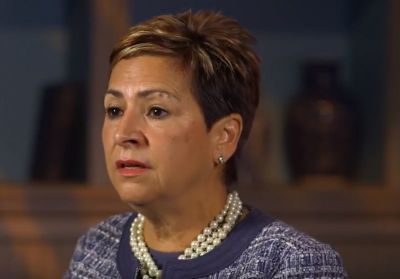UMC Bishop Defends Plan to Soften Church's Views on Homosexuality: It's 'Not Perfect' but Welcomes All

A United Methodist Church bishop has defended a plan to remove the denomination's official stance against homosexual acts, claiming that while "not perfect" it welcomes both liberals and conservatives.
Next year, the UMC will hold a special General Conference to determine whether to retain its official opposition to homosexuality and gay marriage.
One proposal, known as the "One Church Plan," seeks to allow individual congregations and some regional bodies to determine their position on sexual ethics.
Louisiana Area Bishop Cynthia Fierro Harvey, president-designate of the UMC Council of Bishops, released a video on Wednesday, explaining her support for the "One Church Plan."
Bishop Harvey stated that of the possible plans, the One Church Plan is "the one that's most faithful to my consecration as a bishop, to guard the faith and the unity of the church. Not the uniformity of the church, but the unity of the church."
Harvey went on to note her own experiences of being excluded when growing up, due to things like being a woman, Latino, and coming from a rough neighborhood.

"By just virtue of who I am, I've been excluded. And why in the world would I want that for anybody else?" she asked.
Harvey explained that while she believed the One Church Plan "isn't perfect," she also believed it was the plan that "comes the closest to including people like me, people not like me, people who agree with me, people who don't agree with me."
"It's not about diminishing where anybody else stands on any of these issues. I'm not here to convince someone that I'm right and you're wrong," Harvey continued.
"I just want to convince us to be able to live in our rightness and our wrongness, but live in our oneness. I love the United Methodist Church because of its diversity, I loved the United Methodist Church because we're allowed to think differently."
John Lomperis of the Institute on Religion & Democracy took issue with Harvey's comments, telling The Christian Post in an interview on Monday that they "misrepresented" the true nature of the One Church Plan.
"This plan would divorce our denomination from historic, biblical Christian faith and is the one plan most guaranteed to irreparably shatter the unity of United Methodism, as we have seen when other denominations followed this path," said Lomperis.
"She claims the plan is 'very Wesleyan' but it would reject John Wesley's own teachings about marriage and would dramatically move our church away from the covenant accountability that was the central defining feature of the early Wesleyan movement."
Lomperis also told CP that he objected to Harvey's claim that the plan would promote unity and inclusion, noting that the plan, if implemented, would alienate many.
"[The plan would] exclude laypeople from key decisions about the moral standards and conduct of pastors in their areas, force traditionalist Bible-believing United Methodists to pay for and submit to the authority of homosexually active bishops, force every local region to accept United Methodist same-sex weddings, and drive a stampede of evangelicals out of the denomination," he maintained.
"Really, of all the major plans on the table, it is the Traditionalist Plan that would actually preserve the greatest amount of unity of United Methodists of as wide a range of viewpoints as is realistic at this point."
At the 2016 General Conference, a Commission on a Way Forward was created to come up with a potential solution for the controversy. One proposal was the One Church Plan, which would remove language labeling homosexuality "incompatible with Christian teaching," allow churches in the United States to permit same-sex weddings and gay ordination while letting clergy and some overseas conferences retain official opposition.
The plan has the backing of a majority of the UMC Council of Bishops, who in May released a statement saying the plan "encourages a generous unity by giving United Methodists the ability to address different missional contexts in ways that reflect their theological convictions."
In addition to the One Church Plan, the other proposals up for consideration next February include the "Traditionalist Plan," which maintains UMC's current stance on LGBT issues, and the "Connectional-Conference Plan," which allows regional conferences to determine what stance they will take.
The One Church Plan has also garnered criticism from many liberals within the UMC, who do not believe the plan will resolve the ongoing debate and don't believe it is inclusive enough.
Reconciling Ministries Network Executive Director Jan Lawrence wrote in a blog entry earlier this year that she believed while the plan "has the potential to reduce harm," it was also "far from the inclusive plan some claim it is."
"The plan goes out of its way to accommodate: bishops who don't want to ordain LGBTQ people, pastors who don't want to officiate weddings, boards of ordained ministry and clergy sessions who don't want to ordain LGBTQ people called by God in their conference, and laity of local churches who don't want to allow LGBTQ weddings in the building," wrote Lawrence.




























